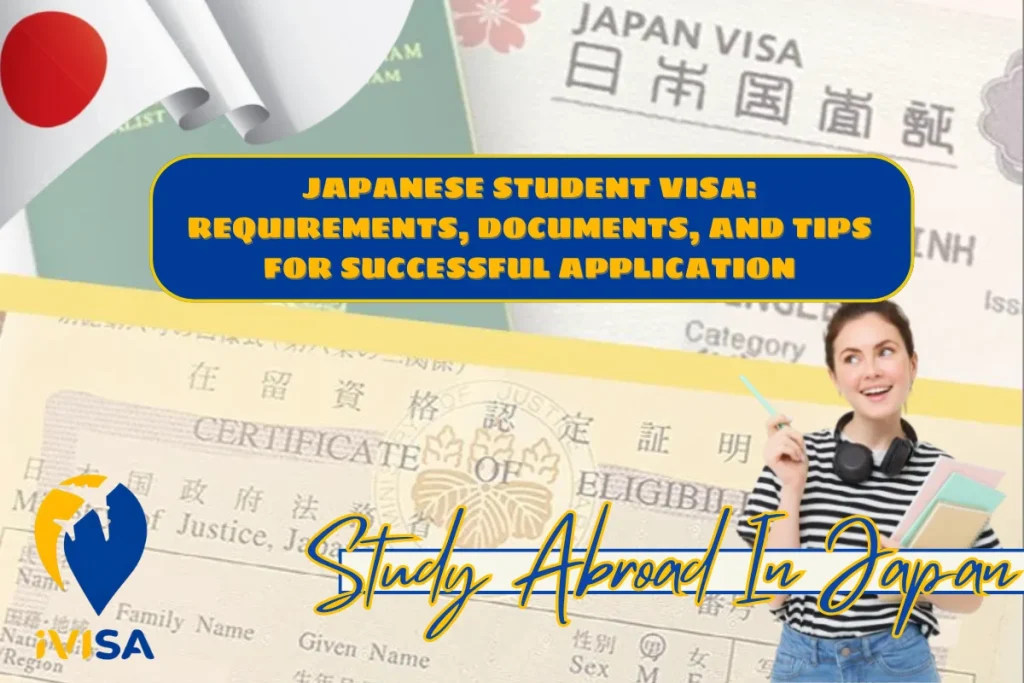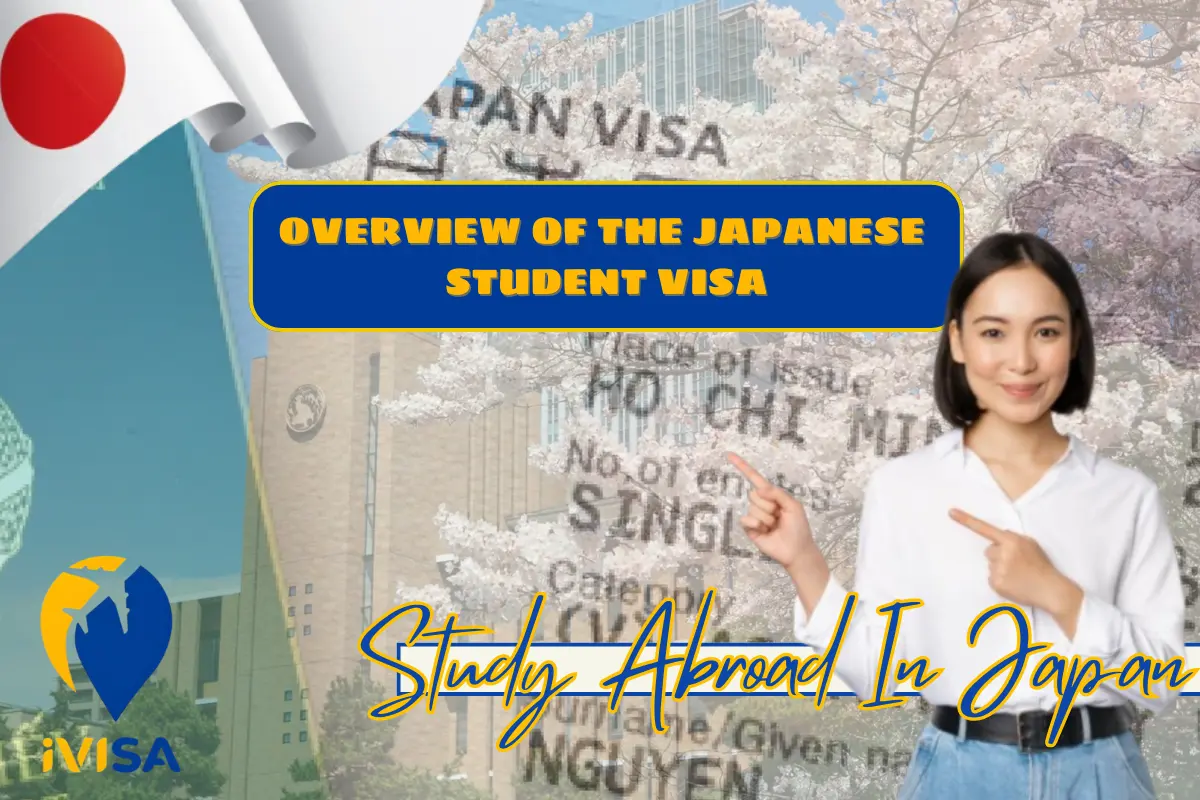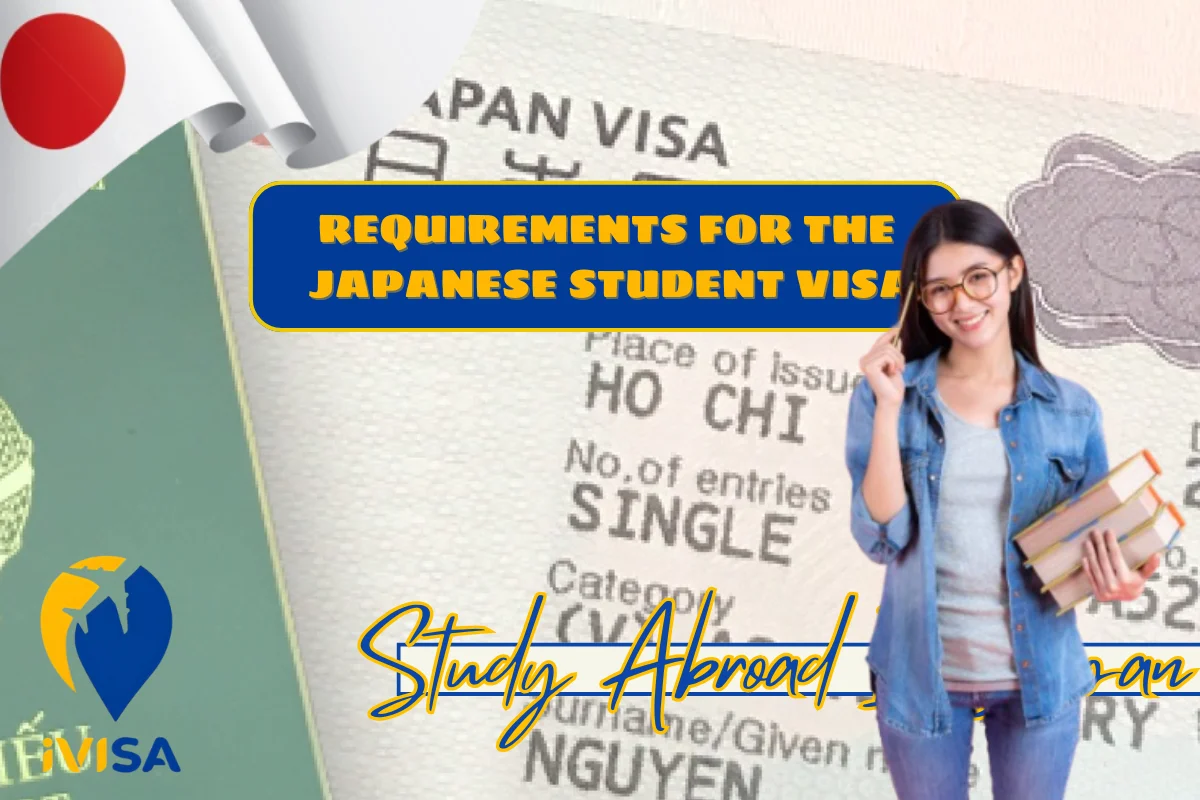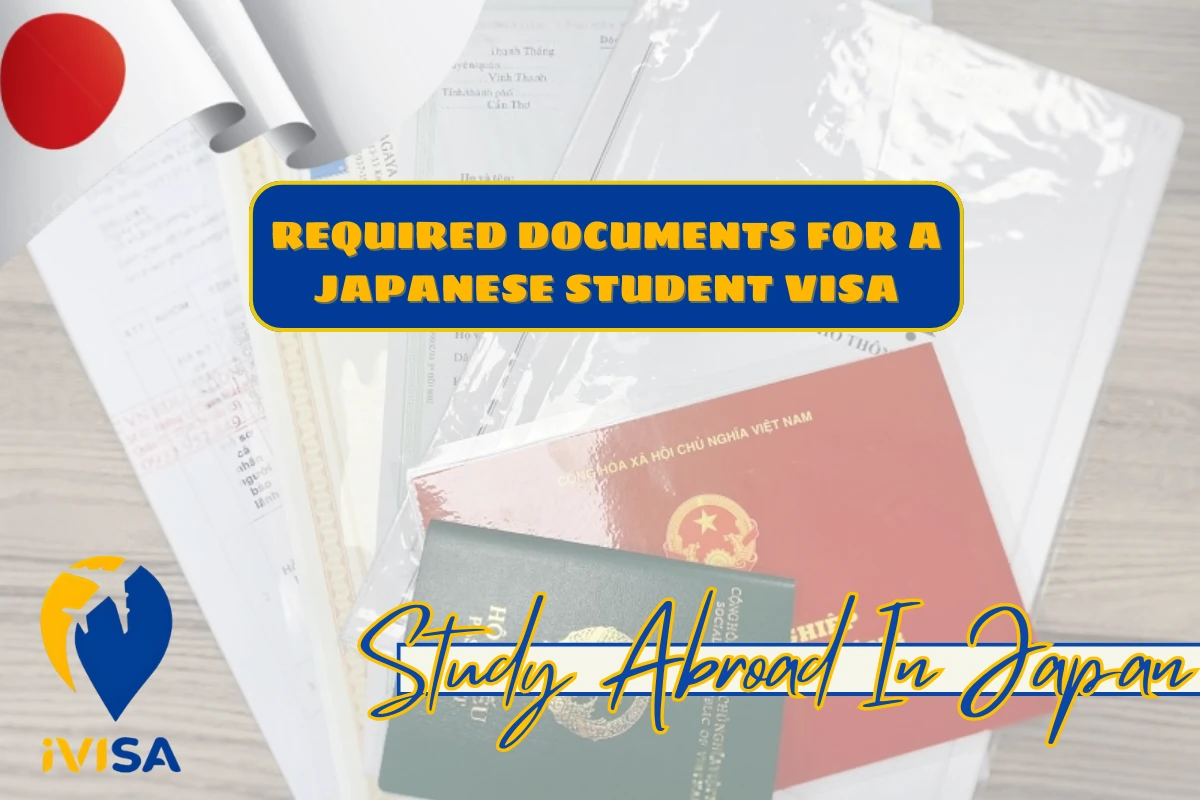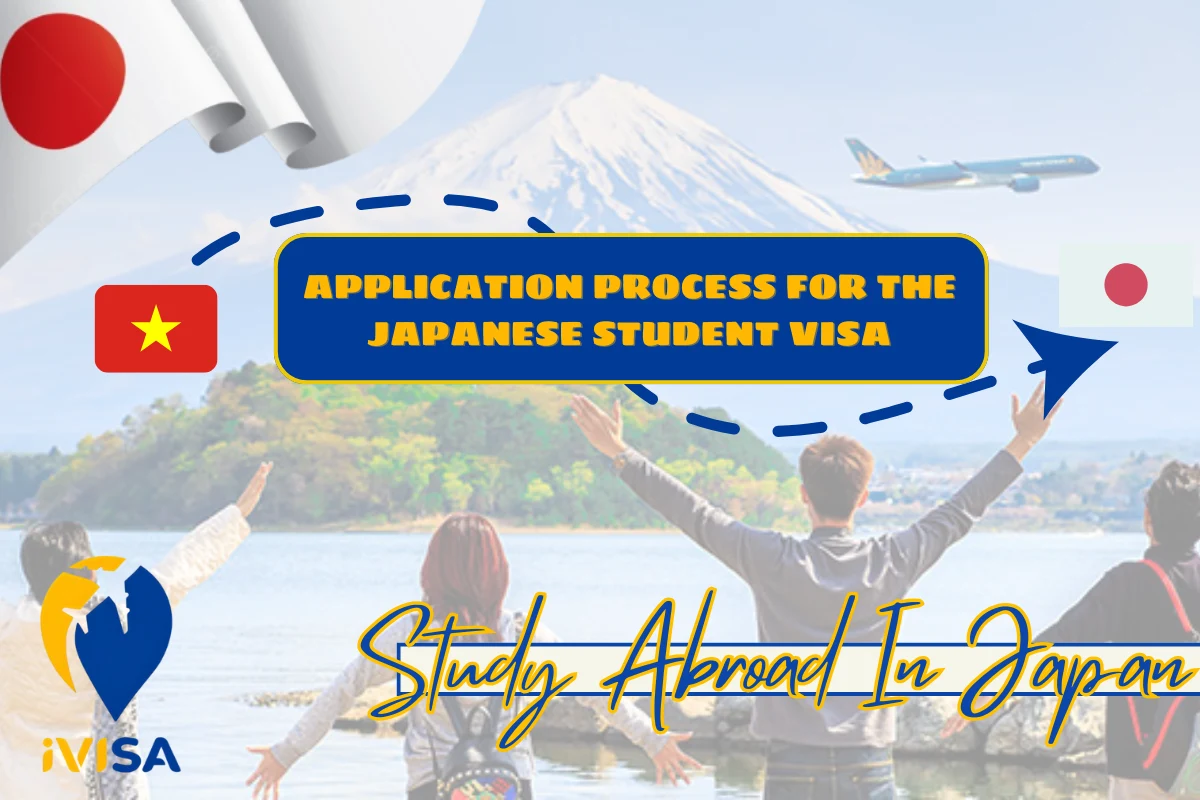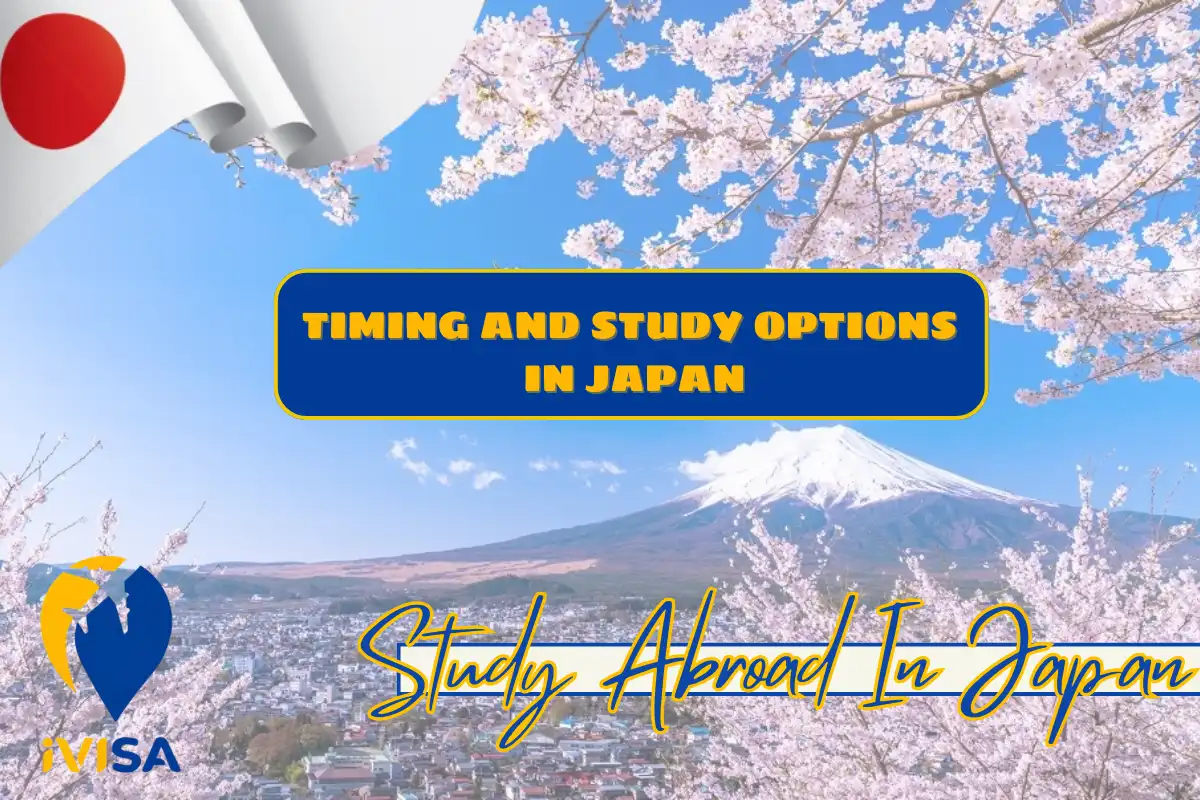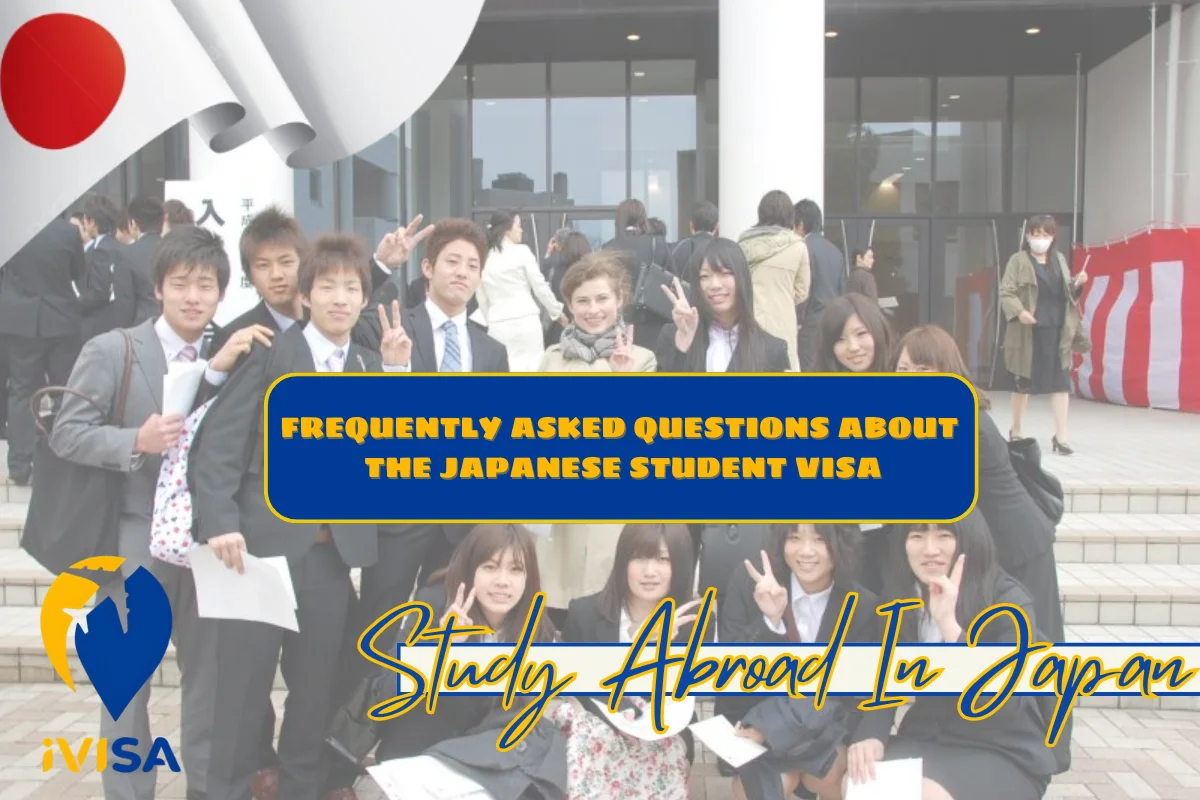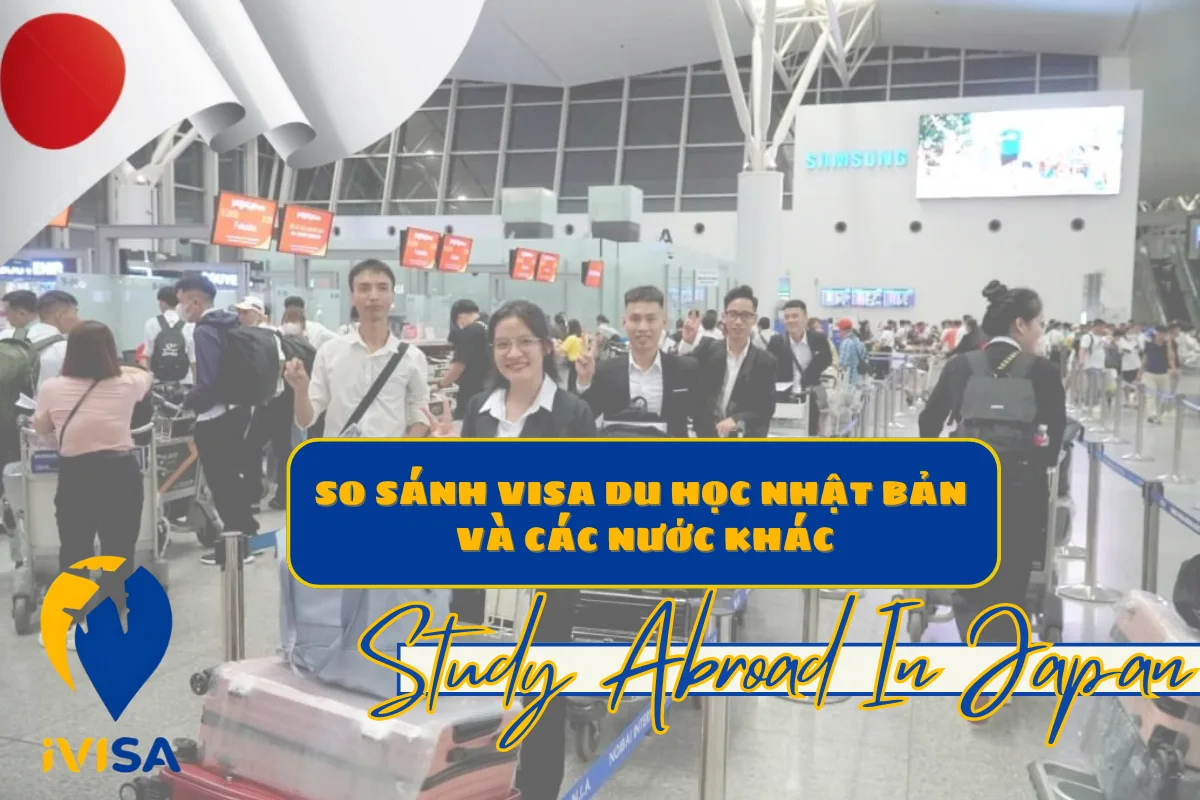Overview of the Japanese Student Visa
Why choose to study in Japan
Japan has become a dream destination for many young Vietnamese students thanks to its high-quality education, safe living environment, and wide career opportunities. To enter and study legally in Japan, students are required to obtain a Japanese student visa. This is a special type of visa issued to international students who wish to study at Japanese institutions.
The student visa is not only an entry requirement but also an official “identity card” that legalizes the right to study, reside, and work part-time in Japan. With this visa, students can register for health insurance, open bank accounts, rent accommodation, and secure their rights throughout their study period.
Read more: Advice for Traveling to Japan
Types of Japanese student visas
Some common types of student visas that applicants should know:
- Language school student visa: For beginners who need 1–2 years of Japanese language training before moving on to higher education.
- Regular program student visa (university, college, vocational schools – senmon): Suitable for students who already have sufficient Japanese proficiency and want to pursue full-time studies.
- Research or exchange visa: For those engaged in specialized research programs or short-term exchange studies between institutions.
Choosing the right visa type from the start helps students set a clear academic pathway, prepare documents for studying in Japan accurately, and increase approval chances. This is also the first step in planning either self-financed study in Japan or pursuing scholarships.
Requirements for the Japanese Student Visa
Academic background and language
To be approved for a Japanese student visa, international students must meet certain basic requirements regarding academic qualifications, language, finance, and health.
- Academic qualifications: Applicants must have graduated from high school or higher. For undergraduate programs, many universities require a GPA of at least 6.5. For postgraduate programs, students need a bachelor’s degree with a clear research proposal. This is an essential part of the student visa application, proving academic ability.
- Language ability:
- For language school visas, applicants are not strictly required to hold language certificates, but JLPT N5 or N4 would be an advantage.
- For college or university programs, JLPT N2 or higher is often required. Alternatively, international English certificates such as IELTS 5.5–6.0 or TOEFL iBT 60+ may be accepted.
Early language preparation not only increases the chance of obtaining a visa but also reduces the initial academic pressure
Financial requirements
- Financial proof: Students must have a savings account of at least 500 million VND, opened 3–6 months before submitting their application. The financial guarantor (usually parents) must provide evidence of stable income. This demonstrates the student’s ability to cover study expenses in Japan.
- Health: A medical certificate from a recognized hospital is required to prove physical fitness for long-term study and living.
- Legal record: Applicants must have no criminal record or previous violations of immigration laws.
These conditions ensure students can study seriously while maintaining a stable and legal life in Japan. This is also an essential tip for increasing the approval rate on the first application attempt. If you still wonder what international students need to prepare before studying in Japan, meeting these requirements is the strongest starting point.
Required Documents for a Japanese Student Visa
One of the most important factors in applying for a visa is the application file. A complete, accurate, and well-organized file will help the screening process run smoothly and reduce the risk of rejection.
Typically, a Japanese student visa application includes:
- Personal documents: A passport valid for at least 6 months, photos (4.5×4.5cm, white background, taken within 6 months), birth certificate, and ID card.
- Academic documents: High school diploma or higher, detailed transcripts, and language certificates such as JLPT, IELTS, or TOEFL. These allow schools and embassies to evaluate academic ability.
- Financial documents: Savings account book (opened 3–6 months prior), bank balance certificate, guarantor’s income certificate (from parents), labor contract, and other proof of assets such as property ownership if available. This is crucial evidence of financial capacity, especially for those pursuing self-financed study in Japan.
- Legal documents: Judicial record certificate (No. 1) showing no criminal background, and a health certificate from a recognized hospital.
- Visa application form: According to the format required by the Embassy or Consulate of Japan. For students already in Japan and continuing studies, an extension form may be submitted to renew the visa.
Application Process for the Japanese Student Visa
Once documents are prepared, students will enter the official visa screening process. Understanding each step helps avoid mistakes and increases success chances.
The basic process usually includes 5 steps:
- Submit application for admission: Send academic documents to the school. If accepted, the school applies for the Certificate of Eligibility (COE) on the student’s behalf.
- Receive COE: This document proves eligibility to study in Japan and is compulsory in the visa application.
- Prepare visa application: Combine COE with personal, academic, and financial documents.
- Submit visa application: At the Japanese Embassy in Hanoi or the Consulate in Ho Chi Minh City.
- Receive result: Processing time is usually 5–10 working days.
Note: COE is indispensable; financial documents must be transparent and appropriate for the study plan. Students should check email frequently to provide additional papers if requested. This is one of the most useful tips for a smoother process and higher visa approval rates.
Timing and Study Options in Japan
Why is it important to choose the right intake?
Choosing the right intake plays a vital role in the study journey. If you determine clearly which month is best to study in Japan, you will be able to plan academics, prepare visa documents, and manage both finance and study schedules effectively. Japan offers four main intakes: April, July, October, and January. Each has distinct features suited for different students.
Comparison of Japanese intakes
| Intake | Key Features | Best Suited For |
| April | Largest intake of the year; most universities and language schools open courses; wide scholarship opportunities. | Students who want a full study pathway with many options. |
| July | Fewer schools recruit compared to April; gives students more time to improve Japanese. | Those who missed the April deadline for visa applications. |
| October | Second most popular intake; cool autumn weather suitable for starting studies. | Students needing extra time for financial preparation or language improvement. |
| January | Shortest intake; limited schools; requires good Japanese proficiency. | Students with strong language skills who want to shorten their study duration. |
Xem thêm: Travel Time to Japan You Should Know?
Frequently Asked Questions (FAQ) about the Japanese Student Visa
Can international students work part-time in Japan?
Yes. Students are allowed to work up to 28 hours per week if they obtain a work permit outside their resident status. This provides financial support and practical experience.
Can students join health insurance in Japan?
Yes. All international students must participate in the National Health Insurance. With this, they receive up to 70% coverage of medical costs, reducing financial burden.
What happens if the visa expires but has not been renewed?
Students will be considered illegal residents. This may lead to administrative fines, loss of study rights, or even deportation.
Can students reapply immediately after a visa rejection?
No. Students must wait about 6 months before reapplying. This period allows time to strengthen the application.
How long is the COE valid?
The COE is valid for 3 months from the date of issue. Students must apply for the visa within this period to avoid restarting the process.
Comparison between Japanese Student Visa and Other Countries
When choosing a study destination, many students and parents compare the Japanese student visa with countries like the US, UK, or Canada. Below is a detailed comparison:
| Criteria | Japan | US / UK / Canada |
| Language requirement | JLPT/NAT for Japanese programs or IELTS/TOEFL for higher levels | Mainly IELTS or TOEFL |
| Processing time | 1–3 months (including COE) | 1–6 months, depending on country and visa type |
| Part-time work opportunities | Up to 28h/week with a legal permit | About 20h/week (varies by country) |
Overall, the Japanese student visa offers advantages in reasonable costs and more part-time opportunities compared to the US, UK, or Canada. However, language requirements are more specific, as students must often demonstrate Japanese proficiency in addition to English. Therefore, the final choice depends on each student’s academic goals, language ability, and financial plan.
The Japanese student visa is truly a “golden ticket” to study and experience life in the Land of the Rising Sun. With careful preparation of documents, full compliance with requirements, and clear understanding of the process, you will increase your chance of success. Isn’t the journey to Japan already much easier now?
iVISA Property & Citizenship
- Add: Số 99 Nguyễn Thị Nhung, phường Hiệp Bình, TPHCM
- Hotline: 0937 999 610
- Email: info.ivisatravel@gmail.com

